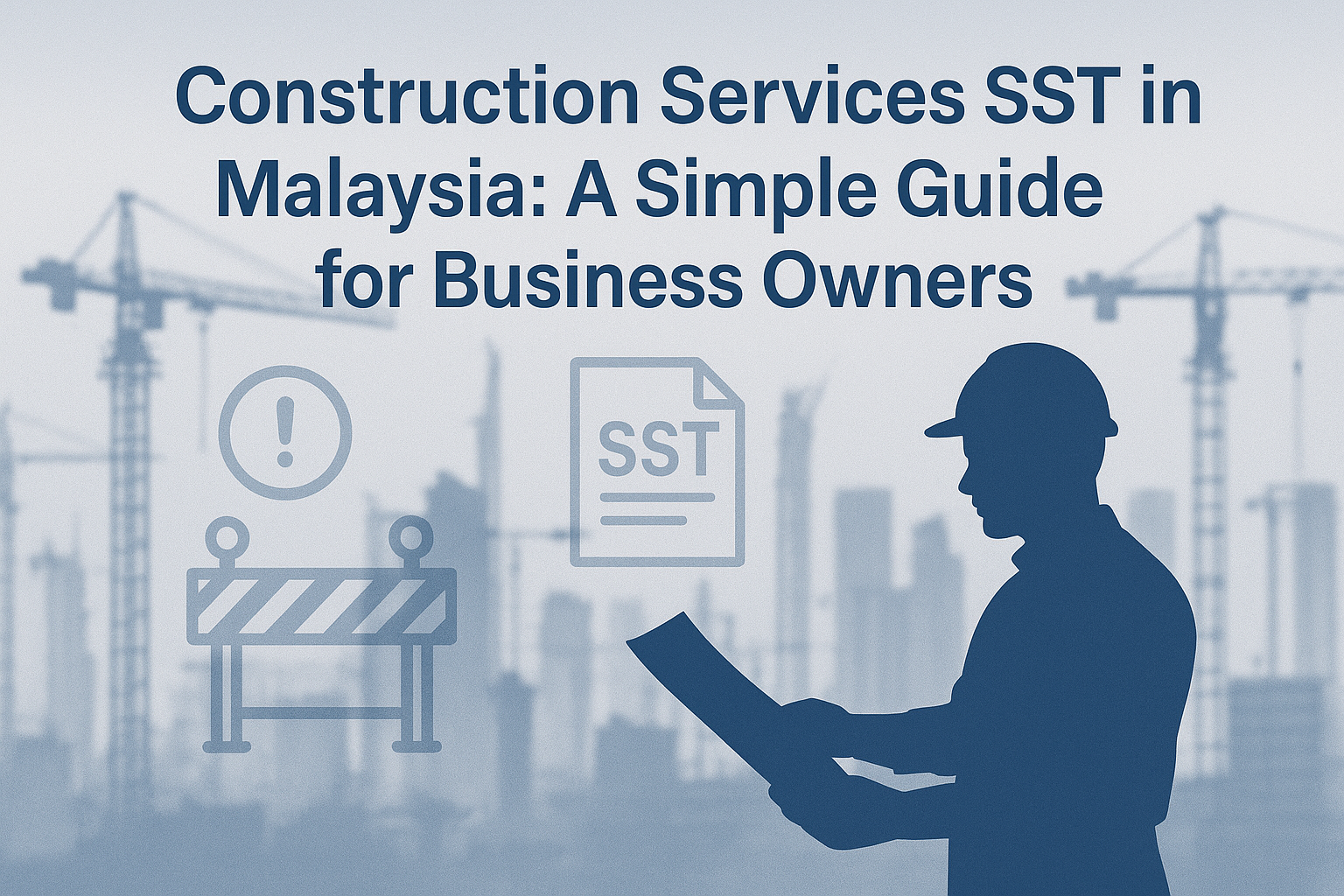The Sales & Service Tax (SST) for construction services in Malaysia is a complex area that can be confusing for many business owners. When does it apply? How is it calculated? What about things like retention sums and progress payments?
This post will break down everything you need to know about Construction Services SST.
1. What is Construction Services SST and Who is Affected?
First, let’s cover the basics.
- Who might be affected?
If your business provides services such as construction, expansion, renovation, plumbing and electrical installation, demolition, or even civil and electromechanical engineering, you may need to charge SST. This applies to any project that is not for a purely residential purpose. - What is the threshold?
You are required to register for SST when your total value of taxable services over a 12-month period exceeds RM1,500,000. - What is the tax rate?
The service tax rate is 6%.
A very important reminder: projects that are exempt from service tax may still be counted when calculating your RM1.5 million threshold.
2. Which Projects are Subject to SST? (Scope of Taxation)
A common point of confusion is determining which types of construction projects are taxable. Here is a simplified breakdown:
-
Taxable Projects (✔):
- Commercial or mixed-use developments (e.g., commercial towers, factories, office buildings, shopping malls).
- EPCC projects (Design, Procurement, Construction, and Commissioning).
- Mixed development projects (residential + commercial), where the entire project is subject to SST, regardless of the residential portion’s size.
- Renovations within a mixed development unit, as the end-use is commercial.
- Public facilities that are not part of a residential project (e.g., airports, train stations).
-
Non-Taxable Projects (✘):
- Purely residential buildings and their related public amenities (e.g., parks, roads).
- Renovations of purely residential units (for non-mixed use).
- Government projects (federal/state/local), however, the value of these projects is included when calculating your RM1.5 million registration threshold.
-
Conditional Projects (?):
- Projects in special or designated areas (e.g., Langkawi) are conditionally taxed. If the contractor’s head office is in West Malaysia, the service is taxable. It may be exempt if the head office is located on the island.
3. Key Reminders on Invoicing and Payments
Proper invoicing is critical for SST compliance.
- SST Invoices: You must issue an SST invoice for any taxable project. This can be an e-Invoice, PDF, or a paper invoice.
- Invoice Content: The invoice must include client details, a description of the services, and the taxable amount (at 6%).
- Progress Payments & Retention Sums: You must issue an invoice and report the SST upon receiving the payment for these items. It is recommended to get certification for each work stage before issuing an invoice for a progressive claim.
- B2B Exemptions: For B2B projects that are exempt, your invoice should clearly state the client’s SST number and the value of the exempt amount.
4. Frequently Asked Questions (FAQ)
Here are answers to some common questions regarding construction SST.
-
How is the taxable value of construction services calculated?
It includes the total value of the services provided, as well as the value of the raw materials used for the construction.
-
If the client buys materials and I only provide labor, how is SST calculated?
If the contract clearly states only the labor cost, then only the labor portion is subject to SST.
-
Do I need to charge SST on liquidated damages or penalties for project delays?
No. These are considered compensation for losses and are not subject to SST.
-
What if my contract started before the SST effective date but continues after?
Only the portion of services rendered after the effective date is subject to SST. This also applies to retention sums that span across two different tax periods.
Navigating Compliance with Confidence
Staying on top of complex regulations like Construction Services SST is a major challenge for busy business owners. The rules around project types, progress payments, and invoicing require constant attention to detail.
At SMONE, we specialize in helping businesses like yours manage these complexities. We can work with you to ensure your project accounting and invoicing are fully compliant with the latest LHDN requirements, so you can focus on what you do best—building and growing your business. Contact us today for a consultation.
(Disclaimer: This article is for general informational purposes. It does not constitute legal or tax advice. Please consult with a qualified professional for advice tailored to your specific situation.)


